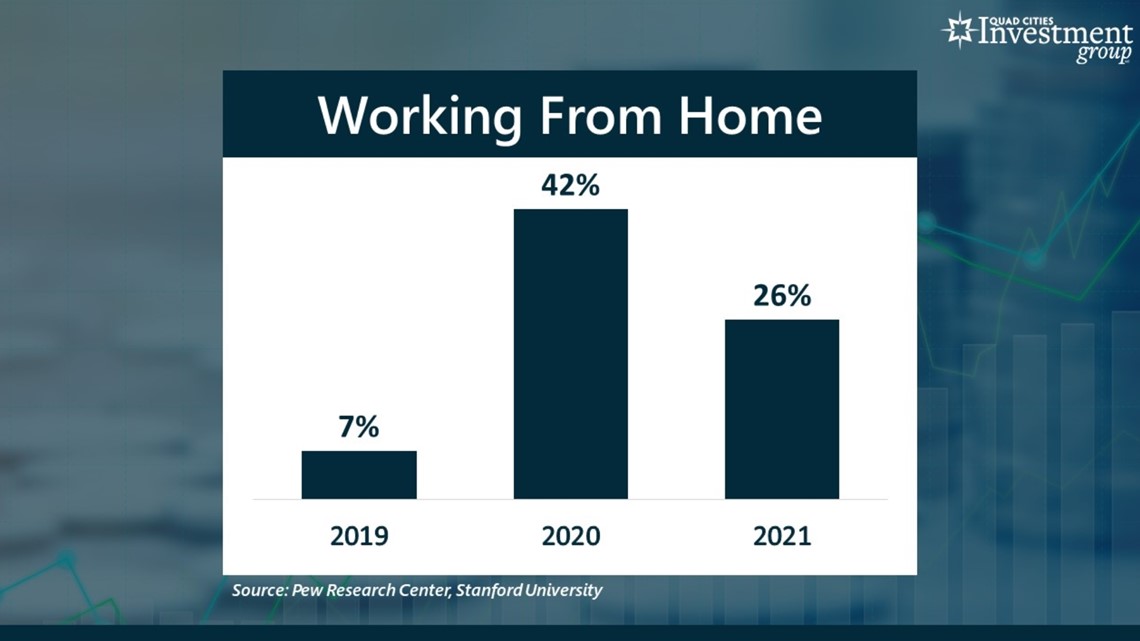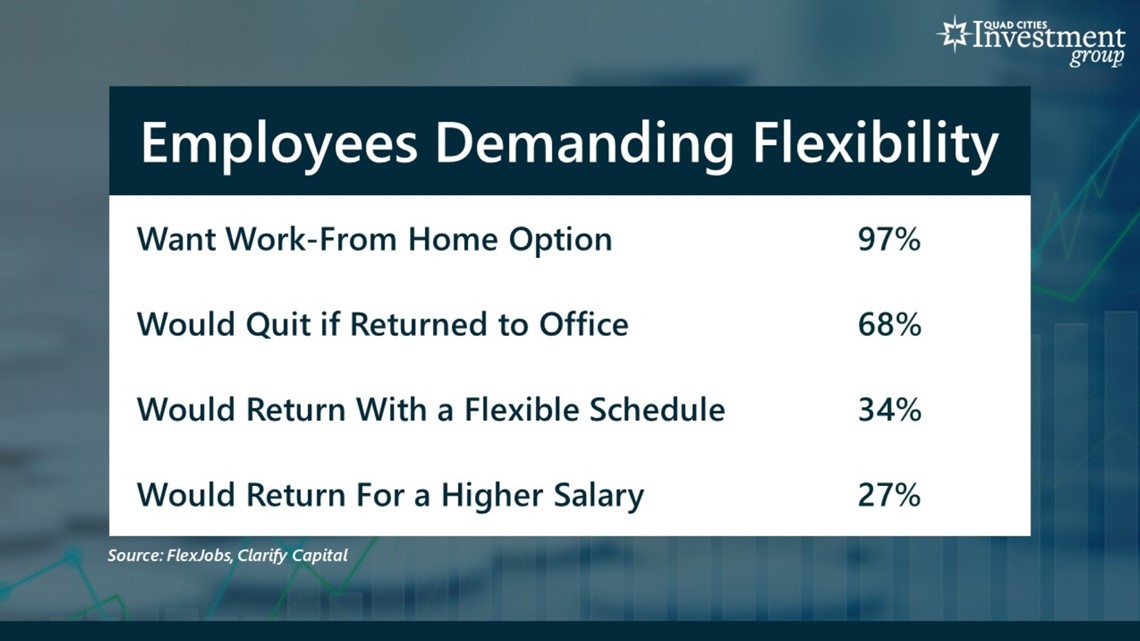DAVENPORT, Iowa — The COVID pandemic did much to change the traditional workplace dynamic.
In early 2020, government mandates, quarantines and school closures suddenly forced millions of Americans to work from home. But three years later, the challenge for employers has been trying to get their workers to return to the office.
News 8's David Bohlman spoke with Quad Cities Investment Group's Mark Grywacheski to discuss the latest data on Americans working full-time from home and why some Americans are still waiting to get back to the office.


Bohlman: Over the past three years we’ve seen employees gradually return to the workplace. But what’s the latest data on the number of Americans who still work full-time from home?
Grywacheski: Before the pandemic, just 7% of Americans worked full-time from home. But for millions of Americans, the pandemic really changed how/where we performed much of our work.
By July 2020, during the height of the pandemic, the number of Americans working full-time from home jumped to 41%.
But once the economy started to re-open, there’s been this ongoing push by employers to get their employees back to the office in some capacity. Currently, about 26% of all employees work full-time from home.
But it’s within this remaining 26% of workers that we’re seeing this ongoing struggle between employers who say “The pandemic is over, we want/need you to return back to the office” and employees who are saying “No, I’m staying at home. I can do my work just as effectively and efficiently from my kitchen table than I can from my office cubicle."
Bohlman: Why do you think employers are having such a difficult time in getting their employees to return to the office?
Grywacheski: But it really comes down to the current balance of power in the traditional employer-employee relationship. For much of the past three years, a very large labor shortage has shifted the balance of that power to the employee. Employers have been desperately trying to find enough qualified workers to fill their ranks. So that shift in power has allowed many employees to say “If you want me to work for you, here’s my list of demands. And part of those demands allows me to work from home."


Bohlman: Why do you think there’s such a hesitation by so many people to return to the office?
Grywacheski: I think many people got to enjoy what they perceive as the benefits of working from home.
- There’s no commute to/from the office. In many big cities, that can be an hour each way.
- They save money on gas/dry cleaning.
- Provides a greater work-life balance.
- All the surveys conducted show that employees are demanding more flexibility in their work.
- 97% of all employees want some type of work-from-home option, even if it’s just one day a week.
- 68% of employees that currently work full-time from home would quit their job if they were forced to return to the office.
- 34% would return to the office but only with some type of flexible schedule.
- 27% would return to the office but only if they could negotiate a higher salary.
Bohlman: Do you think we’ll ever return to the traditional workplace environment we had before the pre-pandemic or do you think some component of allowing employees to work from home is here to stay?
Grywacheski: There’s always going to be certain jobs or certain employers that require the employee to be at the employer’s place of business. I still think many employers will remain hesitant to allow their employees to work full-time from home. But I do think there’s a growing acceptance for some type of hybrid model – which allows employees to work from home maybe one or two days a week.
Watch more "Your Money with Mark" segments on News 8's YouTube channel
Quad Cities Investment Group is a Registered Investment Adviser. This material is solely for informational purposes. Advisory services are only offered to clients or prospective clients where Quad Cities Investment Group and its representatives are properly licensed or exempt from licensure. Past performance is no guarantee of future returns. Investing involves risk and possible loss of principal capital. No advice may be rendered by Quad Cities Investment Group unless a client service agreement is in place.

